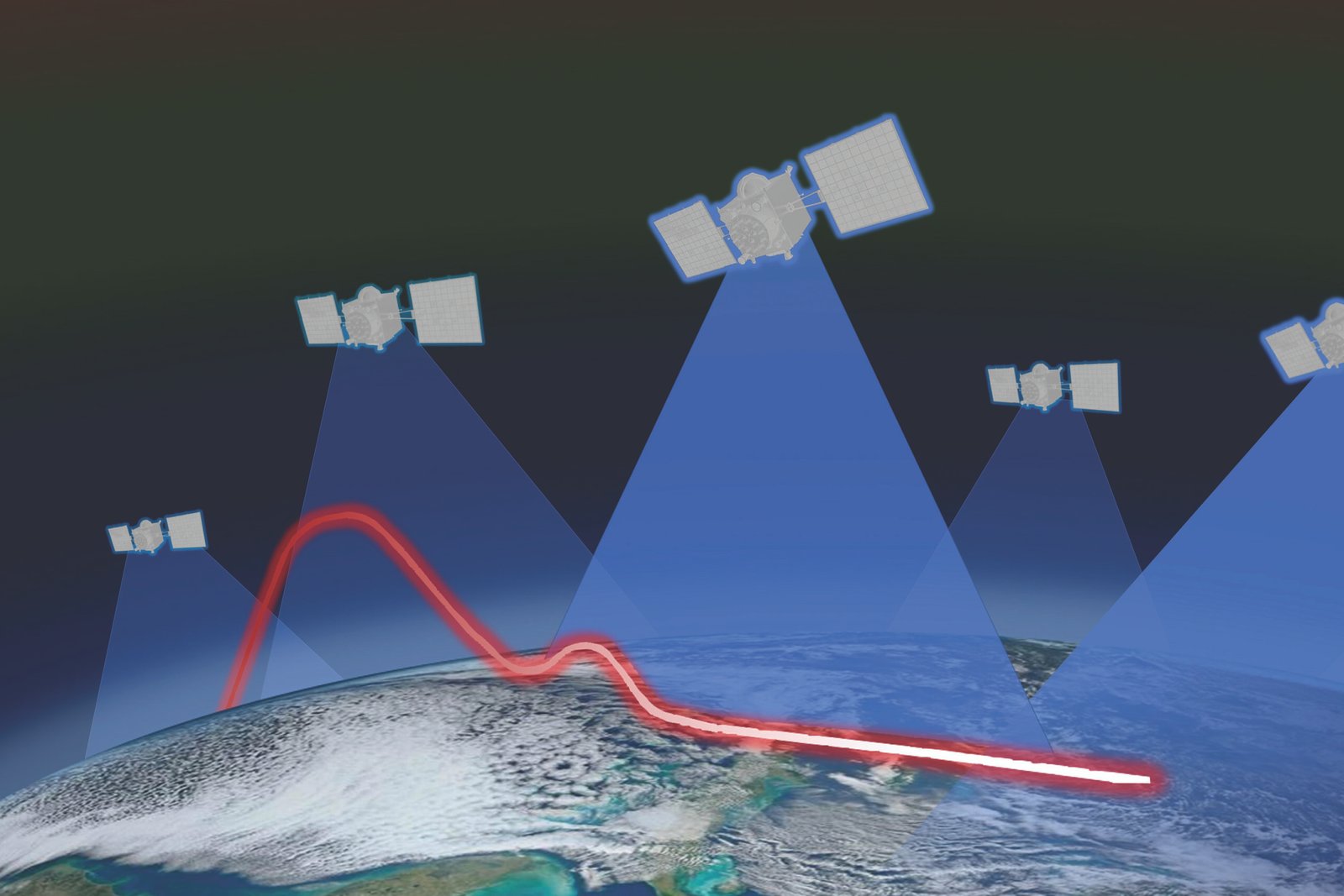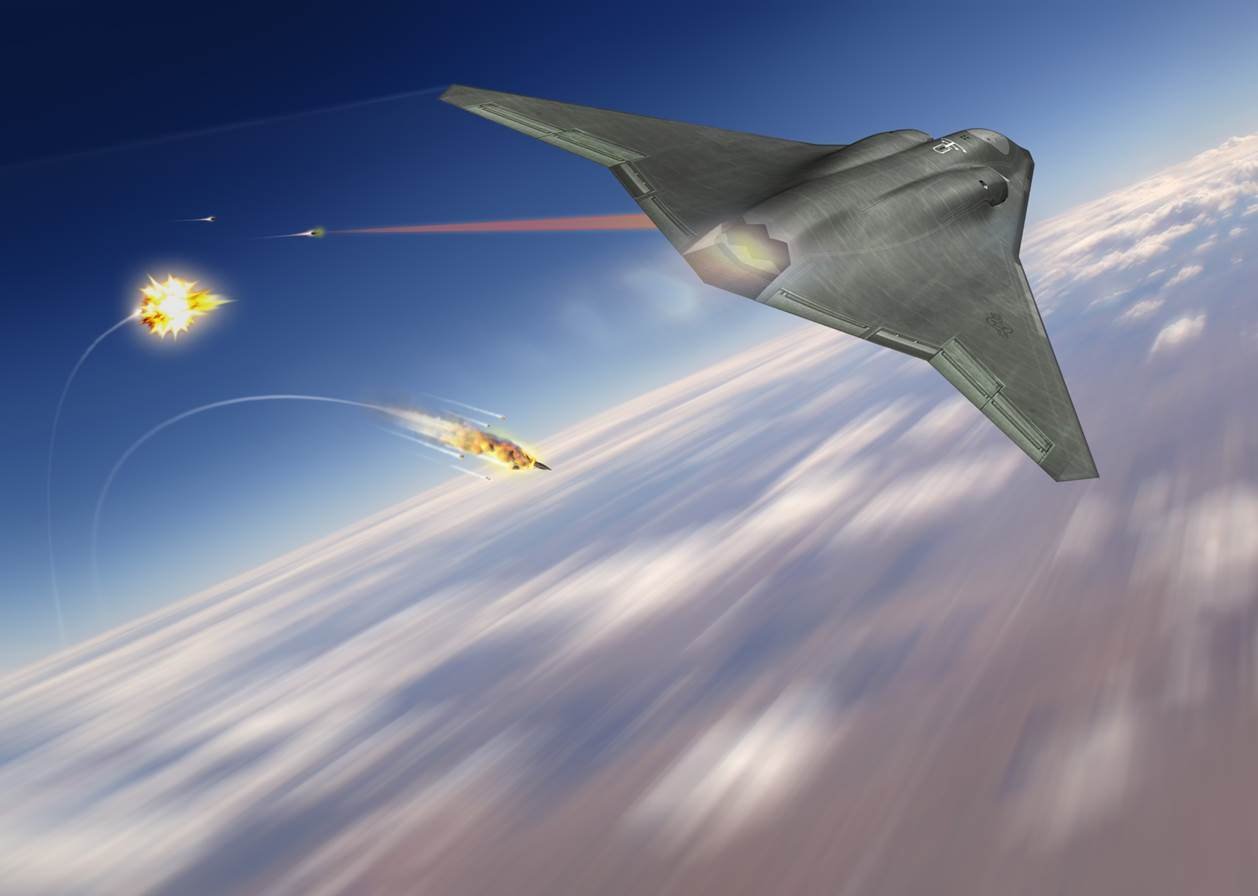The Pentagon’s acting acquisition executive has ordered a review of the Space Development Agency’s progress toward fielding a proliferated constellation of missile tracking and data transport satellites.
“I am requesting the Secretary of the Air Force rapidly form an independent review team (IRT) to assess SDA’s organizational performance and acquisition approach,” Steven Morani, who is performing the duties of Under Secretary of Defense for Acquisition and Sustainment, said in a Jan. 31 memo obtained by Defense News.
Breaking Defense first reported on the memo.
SDA was created in 2019 to quickly field a constellation of hundreds of data transport and advanced missile tracking satellites in low Earth orbit, about 1,200 miles above the Earth’s atmosphere. Those spacecraft will augment existing fleets of large satellites, and SDA plans to upgrade its capabilities on a two-year cycle.
The agency began launching its first batch of satellites, dubbed Tranche 0, in April 2023 and is slated to start launching the next round, Tranche 1, this spring. Both tranches, which are meant to demonstrate that the concept works, have faced delays due to supplier issues, but the agency says it’s on track to have its first operational satellites in orbit by 2026.
The review, according to the memo, is meant to ensure that SDA is on track to deliver that constellation, known as the Proliferated Warfighter Space Architecture, as well as the ground support required to operate fleets of missile tracking, communication and navigation satellites. The team will also consider any risks related to SDA’s contracting strategy, funding and schedule and propose remedies to mitigate any challenges it identifies.
SDA and the Air Force deferred comment on the memo to the Office of the Secretary of Defense, which did not respond to questions about the memo by press time.
Beyond performance, Morani’s memo directs the review team to assess “the efficacy of the SDA’s organizational staffing, structure, processes and position as a direct reporting unit within the United States Space Force.”
SDA today is a standalone acquisition organization within the Space Force that doesn’t fall under the purview of the service’s primary development and procurement arm, Space Systems Command. Rather, the agency’s director reports to the assistant secretary of the Air Force for space acquisition and integration and the chief of space operations.
The memo comes weeks after SDA Director Derek Tournear was placed on administrative leave due to an ongoing investigation into past contracting actions by the Air Force Office of Inspector General. Lt. Gen. Philip Garrant, who leads Space Systems Command, had been serving as acting SDA director since Jan. 16, but the Space Force announced this week that Deputy Director of the Air Force Rapid Capabilities Office William Blauser will now lead SDA in an acting capacity.
The memo notes that the review team will note interfere with the ongoing investigation and its assessment “should not consider processes leading to contract awards.”
The review is meant to ensure that SDA is on a path to deliver a proliferated satellite constellation that meets Defense Department requirements.
The Pentagon’s acting acquisition executive has ordered a review of the Space Development Agency’s progress toward fielding a proliferated constellation of missile tracking and data transport satellites.
“I am requesting the Secretary of the Air Force rapidly form an independent review team (IRT) to assess SDA’s organizational performance and acquisition approach,” Steven Morani, who is performing the duties of Under Secretary of Defense for Acquisition and Sustainment, said in a Jan. 31 memo obtained by Defense News.
Breaking Defense first reported on the memo.
SDA was created in 2019 to quickly field a constellation of hundreds of data transport and advanced missile tracking satellites in low Earth orbit, about 1,200 miles above the Earth’s atmosphere. Those spacecraft will augment existing fleets of large satellites, and SDA plans to upgrade its capabilities on a two-year cycle.
The agency began launching its first batch of satellites, dubbed Tranche 0, in April 2023 and is slated to start launching the next round, Tranche 1, this spring. Both tranches, which are meant to demonstrate that the concept works, have faced delays due to supplier issues, but the agency says it’s on track to have its first operational satellites in orbit by 2026.
The review, according to the memo, is meant to ensure that SDA is on track to deliver that constellation, known as the Proliferated Warfighter Space Architecture, as well as the ground support required to operate fleets of missile tracking, communication and navigation satellites. The team will also consider any risks related to SDA’s contracting strategy, funding and schedule and propose remedies to mitigate any challenges it identifies.
SDA and the Air Force deferred comment on the memo to the Office of the Secretary of Defense, which did not respond to questions about the memo by press time.
Beyond performance, Morani’s memo directs the review team to assess “the efficacy of the SDA’s organizational staffing, structure, processes and position as a direct reporting unit within the United States Space Force.”
SDA today is a standalone acquisition organization within the Space Force that doesn’t fall under the purview of the service’s primary development and procurement arm, Space Systems Command. Rather, the agency’s director reports to the assistant secretary of the Air Force for space acquisition and integration and the chief of space operations.
The memo comes weeks after SDA Director Derek Tournear was placed on administrative leave due to an ongoing investigation into past contracting actions by the Air Force Office of Inspector General. Lt. Gen. Philip Garrant, who leads Space Systems Command, had been serving as acting SDA director since Jan. 16, but the Space Force announced this week that Deputy Director of the Air Force Rapid Capabilities Office William Blauser will now lead SDA in an acting capacity.
The memo notes that the review team will note interfere with the ongoing investigation and its assessment “should not consider processes leading to contract awards.”
About Courtney Albon
Courtney Albon is C4ISRNET’s space and emerging technology reporter. She has covered the U.S. military since 2012, with a focus on the Air Force and Space Force. She has reported on some of the Defense Department’s most significant acquisition, budget and policy challenges.
Discover more from World Byte News
Subscribe to get the latest posts sent to your email.




